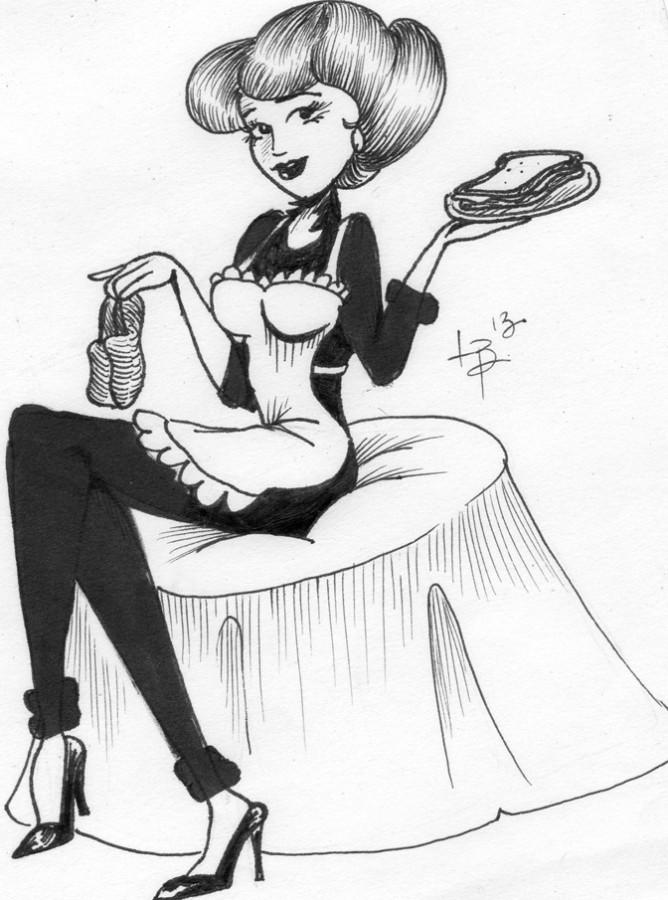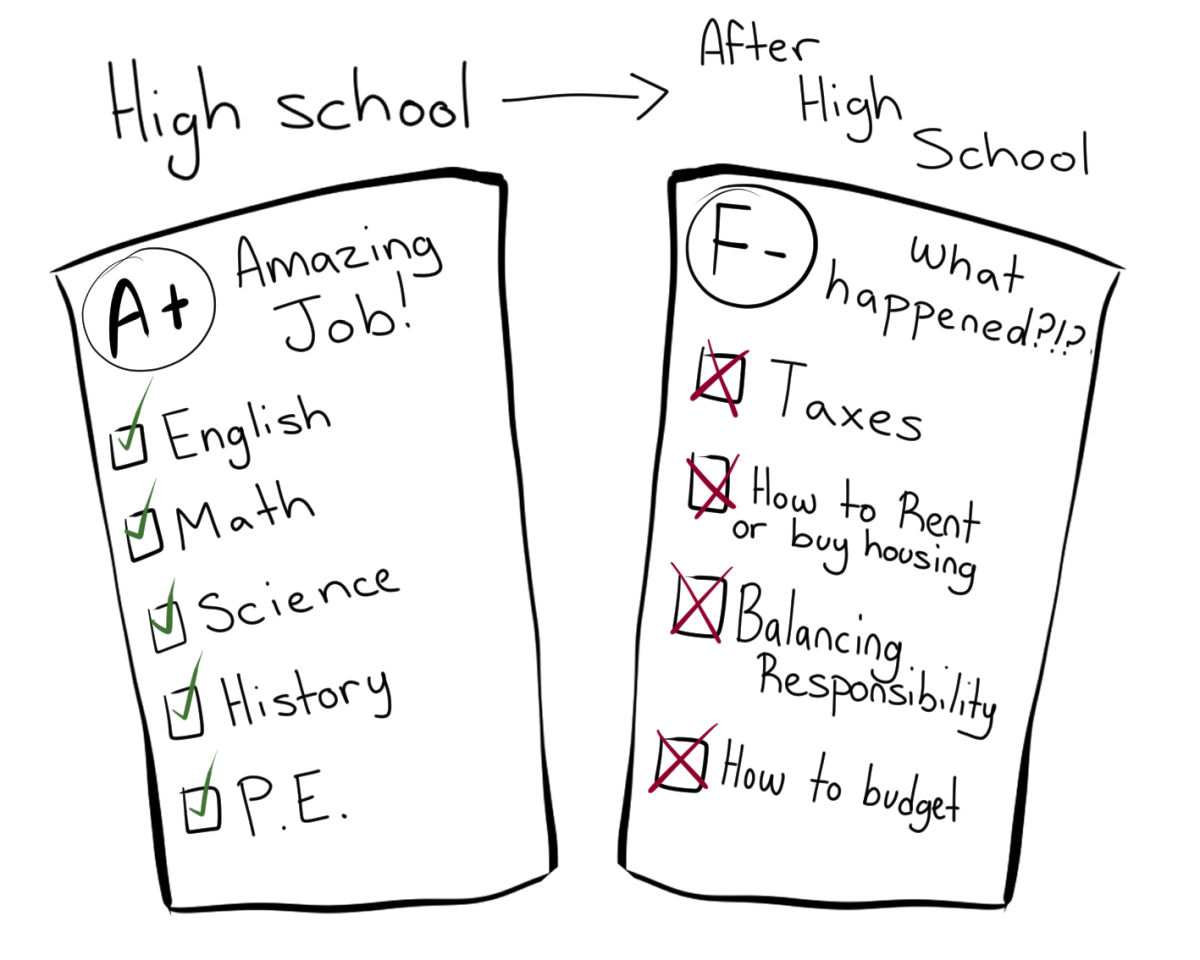Women are still paid less than men, women’s rights legislation is still decided mainly by male politicians and the mainstream media still portrays women in a sexist light. Yes, we are still living in a man’s world. Who could logically argue against this?
We are living in a country where the sole founders were rich, white males that found women to be inferior and weak.
That same ideology has inevitably seeped into the underlying themes of our culture after centuries of circulation.
Throughout the ages, society defined very specific and rigid gender roles that encompassed all aspects of everyday life for men and women. This taught the average citizen that women were naïve and fragile, and belonged within the confines of the household where her only skills of cleaning, cooking, birthing and raising children would keep her busy.
Diametric to this was the man’s role of stepping out onto the frontiers of business and society to earn a solid income, protect his family and engage in politics and public discourse.
Has much changed? According to the Institute for Women’s Policy Research, the wage gap between men and women still exists, and substantially so. In its April 2012 publication “The Gender Wage Gap by Occupation,” the gender wage gap for median weekly income in 2011 was 17.8 percent.
Even when examining job fields many assume belong to women such as registered nursing, the wage gap shows itself.
Women make up more than 90 percent of the nursing field, yet the weekly income for male nurses is $1,081 and only $1,034 for female nurses.
We cannot claim that women have achieved equality when men are still being paid more for doing the exact same job.
Even on issues which men cannot anatomically relate to, such as abortion or birth control, their decisions still dictate how women should live their lives.
The Congressional Research Service, a legislative branch agency of the Library of Congress, issued a report on the 112th Congress of the United States. The 112th Congress (the 2011-2012 year) was comprised of 91 women out of 541 total congressional members, or 16.8 percent. That’s a very large gap for a group of people who create the laws of our country.
Men also fight the battles over women’s bodies whether the female percentage of society agrees with this or not.
HR 447: Prenatal Nondiscrimination Act of 2013 sponsored by Republican Rep. Trent Franks of Arizona was proposed for the 113th 2013-2015 Congress. This bill was created to “prohibit discrimination against the unborn on the basis of sex or race,” in regards to sex-selective abortions, or abortions when a fetus is aborted due to its undesirable sex, which predominantly happens to female fetuses.
Regardless of your stance on abortion, is it fair for men to decide the legal fate of a woman’s body and the life only she is capable of bringing forth? Out of the 102 co-sponsors of HR 447, few are women.
Abortion is a controversial issue that divides women across America, and the biological confines of abortion make it a personal issue men are anatomically incapable of relating to. The decisions made about a woman’s uterus, vagina and fetus should be left to women. With male politicians dominating American government, there is little hope of the female voice being heard correctly.
Women are also continually portrayed as objects of entertainment which leads to their consequent devaluing. Society’s obsession with the futile quest for physical perfection has established disturbing goals for women.
The constant proliferation of visual media pushing a superficial, sexual or physically impossible agenda (fashion advertising is just one example) manipulates and skews women’s perceptions of themselves, leading to personal values based on physical beauty instead of, say, academic skill or independence.
The patriarchal overtones of America have become deviously subtle in an age of technology, social media and consumerism.
The steps we take as a nation into an advanced future hide the flaws of a male-dominated culture, making it harder for women to pinpoint this injustice.
Yet we are still living in a man’s world. Until we fix these social wrongdoings, we stand no chance o achieving a truly equal world.








